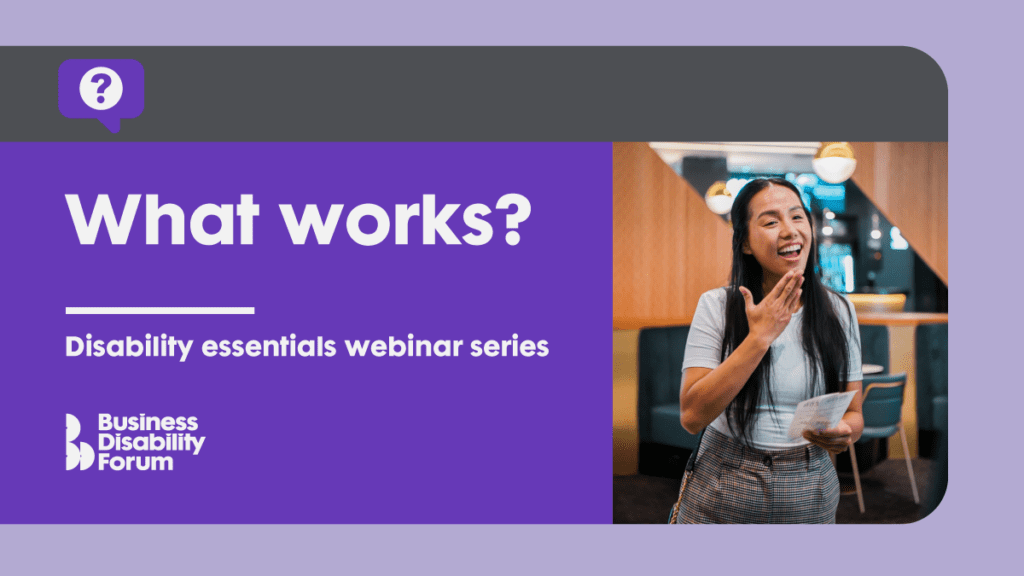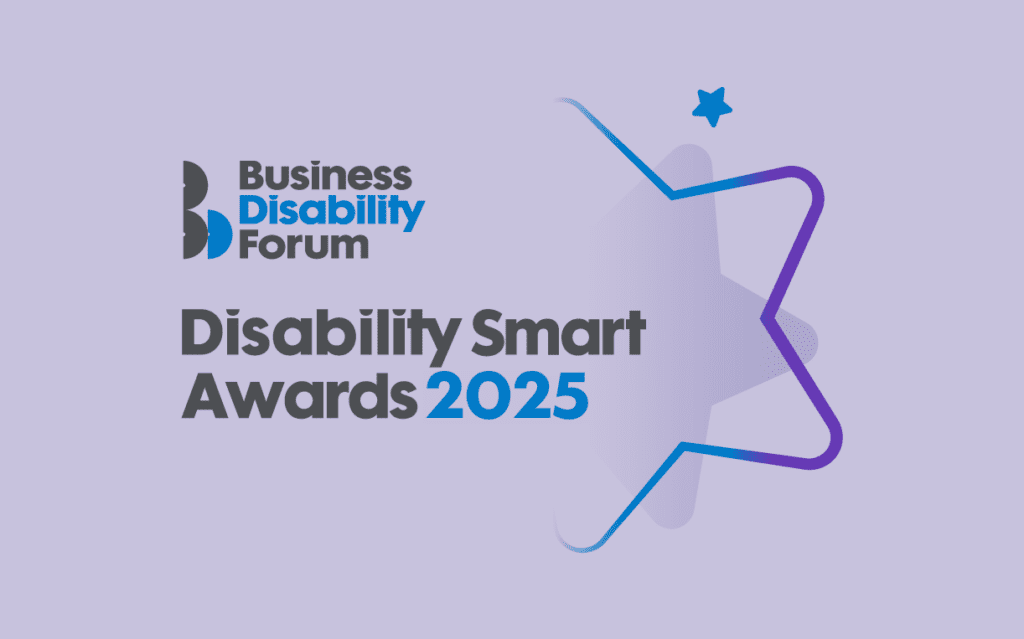Why disability inclusion matters
Find out more about how disability inclusion benefits everyone and why it is important for your business
Representation and inclusion is important for businesses
Disability inclusion is not only the right thing to do, it’s good for your business too:
- More than 90 per cent of the businesses that took part in our Global Disability Inclusion Research said that ‘disability inclusion is the right thing to do’ at a global level.
- More than 80 per cent said disability inclusion allows them to access a wider pool of talent, drives employee motivation, has an impact on sales and opportunities and supports business objectives.
- Diverse businesses and teams are more successful. Various studies have linked better representation and inclusion in businesses with higher performance, and those benefits are growing stronger with time.
- Disabled consumers have significant spending power. In the UK, the “Purple Pound” is worth an estimated £274bn a year and is constantly growing.
- Increasingly, selective and ethically-minded consumers want to see businesses doing the right thing, and will ‘call out’ those who do not do enough.
- The legal case – businesses that overlook diverse groups risk discriminating against them.
Already convinced but need help to bring others in your organisation on board? Read our free resource Making the business case for disability inclusion.
Representative and inclusive workforces: Are there challenges?
- Do you know how many disabled people are in your workplace, or how many of your customers are disabled? The chances are that the real number is much higher than you think. Are you welcoming and supporting them, or driving them away?
- Workplace culture is key. Do people feel comfortable sharing their condition with you and asking for the support they need? Only 43% of disabled people would definitely describe themselves as such to others, according to our research.
- Are you leading from the top? Do your leaders feel able to share personal stories and become role models for their colleagues?
- People manager confidence – Are your people managers familiar with workplace adjustment processes, inclusive design and policies? Do they have the confidence to ask all their team what they need?
- Language, messaging and values – do your organisational messages include or exclude? Are they consistent?
- Are your products and services accessible to disabled customers and consumers?
What are the common misconceptions about disability?
Misconception: People with disabilities are usually born with them.
Reality: A person’s chances of being disabled rise with age. According to the Census, in England and Wales, only 1% of children under the age of 1 were disabled in 2021, versus 18% of the population as a whole.
Misconception: It’s all about wheelchairs and physical disabilities.
Reality: Whilst physical accessibility is really important – and we still haven’t cracked it – many disabled people don’t have physical access needs. In fact, a big part of the rising rate of disability is more people reporting mental health conditions.
Misconception: It’s impossible to performance manage disabled employees.
Reality: You can performance manage a disabled employee just as you would another employee – as long as you make sure that any barriers related to their disability have been removed first and you have provided effective workplace adjustments to support this (and we have lots of information to help you on adjustments – what they are, how to make them, how to check if they are effective and “reasonable”).
Misconception: Disabled people take lots of time off, and managing this is impossible.
Reality: There is no reason why a disabled employee should have more time off sick with common ailments than other employees. We recommend measuring planned disability related absence (for example for a medical appointment) separately to standard sick leave to avoid these being confused. By making adjustments to help people work in a way that suits them – helping them to manage fatigue, pain or anxiety for example – you can make a really positive impact on attendance and performance.
Misconception: Adjustments are expensive.
Reality: Many adjustments cost nothing, and many more are inexpensive. The most common adjustment is flexible working, according to our research. Depending on the size of your business, Access to Work – a government funded scheme – can help meet all or part of the costs of adjustments. In any case, the costs of not making adjustments for employees can be much higher.
Misconception: If customers couldn’t use our products or services, they’d tell us.
Reality: If disabled customers cannot access your services, your premises, or your website, they don’t need to tell you – they can just spend their money elsewhere. Disabled customers will turn, or click, away from inaccessible premises, products and websites.
How can businesses overcome the fear of getting inclusivity wrong?
- Too often, people are afraid of getting it wrong when it comes to inclusivity – so they do or say nothing. But asking disabled people what might work – and designing potential solutions with them – is hugely powerful.
- We have lots of tips on language and our Members and Partners get full access to our Inclusive Communication Toolkit.Too often, people are afraid of getting it wrong so do or say nothing. That’s far worse. Leaders and managers worry about saying the wrong thing but just saying something and normalising the conversation is hugely powerful.
What support does BDF membership offer?
Business Disability Forum membership includes access to our Advice Service, a wide range of resources in our Knowledge Hub including toolkits on Recruitment, Mental Health, Neurodiversity, Inclusive Communication, People Management, Redundancy and Redemployment, Procurement, Technology, (some resources are free and open to all), the support of a dedicated Business Partner, a range of Disability Smart management tools and other services.
Join us
We know that fear can often put organisations off tackling inclusion. Fear of getting it wrong and fear of the complexity of the task. At Business Disability Forum, you will find experts who will support you all the way through your journey to becoming disability-smart.
If you require this content in a different format, contact enquiries@businessdisabilityforum.org.uk.


